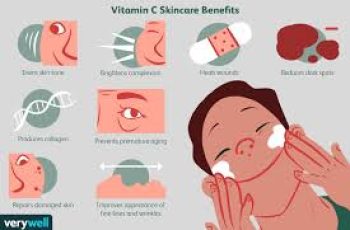
Azelaic Acid vs Benzoyl Peroxide for Acne: Similarities, Differences & How To Choose Between The Two
Azelaic acid and benzoyl peroxide are two ingredients typically recommended for acne-prone skin, but how different are they? And is one more effective than the other?
Explore similarities and differences between these two substances and how to determine which one is right for you.
What Is Azelaic Acid?
Azelaic acid is a dicarboxylic acid found in grains like wheat, barley, and rye. It has antimicrobial and anti-inflammatory properties which makes it a common choice for acne, hyperpigmentation, rosacea, and minor skin irritations.
Azelaic acid also has potent antioxidant effects, which helps to neutralize the free radicals that lead to environmental damage in all types of skin, including sensitive skin.
With its antimicrobial and anti-inflammatory effects, the naturally-occuring acid helps to eliminate acne-causing bacteria on the skin while disrupting the link between increased levels of testosterone and other hormonal changes to minimize hormonal breakouts.
Azelaic Acid benefits
Azelaic acid benefits include:
Clinically proven to reduce acne1
Clinically proven to reduce rosacea lesions2
Eases irritation and redness
Kills bacteria on skin to minimize and heal acne breakouts
Brightens skin
Unclogs pores and removes dead skin cells
Improves skin texture
Minimizes fine lines and wrinkles
Lightens acne scars and hyperpigmentation
Minimizes hormonal breakouts
Gentle enough for sensitive skin
What Is Benzoyl Peroxide?
Benzoyl peroxide is a topical antiseptic that treats acne by releasing free radicals into the skin to kill acne-causing bacteria. It has mild sebostatic and keratolytic properties, which means it inhibits excess oil production and dissolves skin flakes and lesions.
3 These effects help to clear up acne breakouts, but may cause the skin to dry and peel. Like azelaic acid, benzoyl peroxide is also a powerful anti-inflammatory, making it useful in decreasing redness and irritation and easing other skin conditions like rosacea.
Benzoyl Peroxide benefits
Benzoyl peroxide benefits include:
Clinically proven to reduce acne4
Clinically proven to reduce rosacea lesions5
Soothes inflamed skin
Controls oil production
Unclogs pores
Clears away dead skin cells
Azelaic Acid Vs Benzoyl Peroxide
In clinical studies, topical azelaic acid was proven to be as effective as benzoyl peroxide, as well as other popular acne treatments like topical tretinoin, erythromycin, and oral tetracycline for reducing acne.
6 However, azelaic acid is known to be much gentler and less abrasive on the skin than the other products and will not cause peeling or irritation, nor will it make the skin more sensitive to sunlight.
Explore more similarities and differences between azelaic acid and benzoyl peroxide below.
Azelaic Acid 14% Cream
Azelaic Acid 14% Cream
• Reduces acne & rosacea
• Brightens skin, fades brown spots
• Unclogs pores, improves texture
Regular price$45
Add to cart
Similarities
Both azelaic and benzoyl peroxide:
Are clinically proven to reduce acne and rosacea
Have antimicrobial effects, which kills bacteria on the skin
Exfoliate skin to unclog pores and remove dead skin cells
Ease inflammation to reduce redness and swelling
Differences
They seem to work the same, but what is the difference between azelaic acid and benzoyl peroxide? It turns out, there are quite a few. Despite their similarities and proven efficacy in treating acne, azelaic acid is considered gentler, making it a suitable choice for those with sensitive skin. Benzoyl peroxide is known to cause peeling, irritation, and may dry out skin in its attempts to inhibit excess oil. The ingredient also has a bleaching effect, which may affect hair and clothing if used incorrectly. And you are more vulnerable to sun damage when using benzoyl peroxide, so it is imperative you wear sunscreen and protective clothing or stay out of the sun.
Another key difference between azelaic acid and benzoyl peroxide is that azelaic acid promotes the skin’s cell turnover process, triggering collagen production to heal and repair damaged skin. Azelaic acid is also an antioxidant, which means it reduces free radicals in the skin. These reasons make azelaic acid useful in minimizing fine lines and wrinkles. Benzoyl peroxide, on the other hand, actually promotes free radicals in the skin and if used repeatedly, may create skin changes similar to sun damage.7
Can You Use Azelaic Acid & Benzoyl Peroxide Together?
It is possible to benefit from using azelaic acid and benzoyl peroxide together. Some research suggests that the combination of azelaic acid and benzoyl peroxide is actually more effective than using benzoyl peroxide alone.8
Using azelaic acid may also counter or neutralize the potential damage of free radicals released by benzoyl peroxide because of its antioxidant properties.
When & How To Use Azelaic Acid vs Benzoyl Peroxide
Both azelaic acid and benzoyl peroxide can be used once or twice daily depending on your skin type and condition. If you’re using the two ingredients together, it is recommended to cleanse skin first, moisturize, apply benzoyl peroxide first, and then apply azelaic acid last in your routine. Whether you use azelaic acid or benzoyl peroxide, or both, be sure to follow up with a sunscreen of SPF 30 or higher. Though azelaic acid has more of a protective effect and will not make you more sensitive to sunlight, it is still always recommended to wear sunscreen to protect your skin and your health.
Foundation Skincare Azelaic Acid 14% Cream is dermatologist and chemist engineered with the highest non-prescription percentage of azelaic acid available. Formulated with a hydrating cream base, the product layers well with other ingredients without causing irritation or pilling. It can be especially useful when used alongside a drying ingredient like benzoyl peroxide because it can help moisturize skin.
Other products you may want to add to your acne-fighting routine include FS Niacinamide Lotion 10%, which calms skin and contributes to DNA repair, FS Hyaluronic Acid Lotion to lock moisture in, and Night Renewal Cream with 2% Granactive™ Retinoid to improve overall skin texture.
Key Takeaways
In summary, azelaic acid is good for acne, but so is benzoyl peroxide. Both kill acne-causing bacteria on the skin, both reduce inflammation, and both unclog pores while clearing away dead skin cells. However, when it comes to the differences between azelaic acid and benzoyl, there are a few key ones to consider: azelaic acid is a powerful antioxidant while benzoyl peroxide promotes free radicals in the skin. While azelaic acid is gentle enough to be used on the most sensitive skin, benzoyl peroxide is likely to cause peeling and redness while potentially drying out skin.
If you’re still not sure which product to use, we recommend starting with azelaic acid as the gentler option. Then, if you need more help, feel free to add benzoyl peroxide for spot treatment alongside other acne-fighting ingredients in the Foundation Skincare collection.


